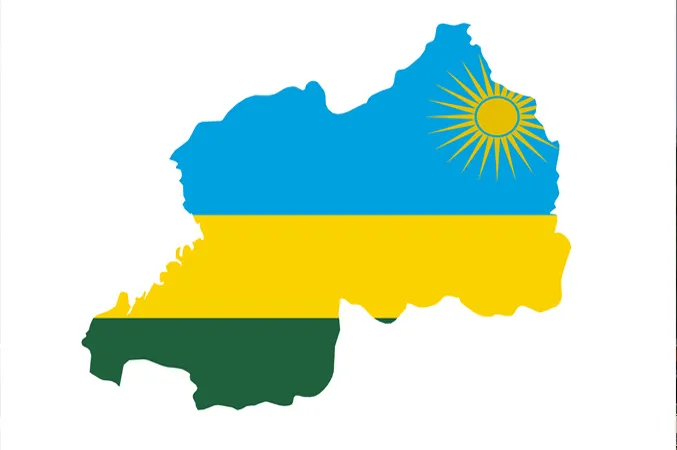Rwanda is a glorious case in the African development narrative. Despite the atrocious Genocide in 1994, which had rendered almost one-third of the Rwandan population with post-traumatic stress disorders, the country has achieved a lot ranging from women empowerment to environmental sustainability.
President Paul Kagame rightly summarises the development trajectory of the country as, “Rwandans have come a long way in the implementation of the Millennium Development Goals. The good performance was realised over a period of many challenges emanating from the Genocide against the Tutsi in 1994. This success shows that the Rwandan people have built the desire, the resilience and the capacity to deliver on their own development ambitions. The achievements realised are underpinned by continued emphasis on good governance, peace and security, which provide a platform for communities and stakeholders to dialogue and find sustainable solutions to development issues. Most importantly, when faced with challenges, Rwandans have not been fazed; instead we moved on, taking stock and learning lessons along the way, and that makes us better equipped to handle the future.”
The Millennium Development Goals 2000 (MDGs) were particularly important for Rwanda as served the purpose of a development engine in the post Genocide reconstruction of the country. Rwanda has been largely successful in implementing the MDGs and it was mainly possible by integrating all 8 MDGs in the national development plan, right from the top to even the district level. According to government officials, only two indicators of the MDGs were missed: they were unable to bring down poverty to half of its existing level and were unsuccessful in eradicating ‘stunting’ although the other indicators of malnutrition were met. This gave Rwanda much experience to move on to the era of the Sustainable Development Goals 2015 (SDGs) which were more comprehensive and detailed in nature.
Given the SDGs progress in Rwanda, the SDG Centre for Africa was established in Rwanda’s capital city of Kigali in 2016. This institute, along with the UN Sustainable Development Solutions Network, published the Africa SDG Index and Dashboard Report 2018 that looked at the SDGs achievement status for the African countries. The top ranked was Morocco at 66.1per cent, while Rwanda was ranked 11th (out of 51) with 57.9 per cent and the lowest was Central African Republic with a score of 35.8 per cent. At the moment, the major challenges for Rwanda to implement the SDGs entail:
1. At the grassroots level there is a tremendous amount of knowledge asymmetry regarding the existence or implementation of the sustainability goals. This raises pertinent questions like, how could citizens monitor progress and facilitate sustainability in this information vacuum? The youth in Rwanda are seen as one of its strongest assets, and this can definitely be the way forward for knowledge dissemination and implementation of the goals at local scales.
2. The capacity to measure, monitor and facilitate development has been a major challenge for Rwanda. To ameliorate this issue, the country has paid added attention to SDGs related data monitoring and parameter identification which is characteristic of the country. In the contemporary era of data revolution, the country is focused on driving this revolution locally, by fostering engagement between the Government, civil society and academicians.
3. The obvious financial gaps continue to be a major problem, especially for low income countries. Rwanda is focusing more on the mobilisation of domestic resources and expanding the tax base by crowding in the private sector. There is huge potential for the private sector in the long term market opportunities that open up by virtue of delivering the SDGs. According to a Business & Sustainable Development Commission Report 2017, the 14 biggest opportunities in 2030 are identified for business solutions in alignment with food challenges, the potential value of which is estimated at US$ 2.3 trillion at current prices. For example, in Rwanda and India, technology for reducing food wastes in the value chain have brought down 60 per cent of the monetary losses and effectively increased small holder farmers’ income by approximately 30 per cent.
According to the UN Sustainable Development Solutions Network’s SDG Index and Dashboards Report 2018, although Rwanda’s Global SDG Rank is 120 out of 156 nations, its SDG index score is 6.3 per cent, higher than the regional average score of Sub-Saharan Africa. While the country’s progress in most of the SDGs is ‘moderately increasing’, Rwanda has shown remarkable results in terms of SDG 5 (Gender Equality), SDG 8 (Decent Work and Economic Growth) and SDG 13 (Climate Action). For Rwanda, dealing with MDGs seemed to be relatively easier than implementing the SDGs. The country continues to be a benchmark example of progress not only for the rest of Africa, but also other developing nations, such as India.
This commentary originally appeared in The New Times
The views expressed above belong to the author(s). ORF research and analyses now available on Telegram! Click here to access our curated content — blogs, longforms and interviews.

